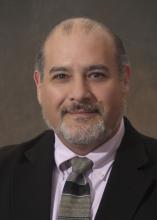How would you treat someone with MCAS?
We are doing a documentary on MCAS, Mast Cell Activation Syndrome. Now, some of those patients that we've interviewed have been sick for 20 years or more in some cases, and they've seen just about everybody. Multiple doctors, multiple testing. And because it's so complex, a lot of doctors are saying, if you've got gut issues, skin issues, digestive issues, headaches, not sleeping, fainting, vomiting, all this kind of thing, I can't treat you. It's too multifactorial to break it down. So, if you were to have somebody like that come to you and they've had all these testings, tried absolutely everything, are actually getting worse, not better, what would you do?
First of all, that's my favorite kind of patient. I'll tell you why. Because they've had everything done, okay? They've had everything done. So for me, it's a matter of taking a really good history, finding out the progression of symptoms, what made it start? Going over all of their testing, going over their treatments that have worked, not worked, and most of them haven't. And whatever's left over is what needs to be done. Believe it or not, I have my highest success rate with those type of complex cases because they've actually done most of the work for me. In other words, they've done every test and creation. All I have to do is review them and rule out all the other things I can think of.
It's not just a histamine problem. That's a byproduct of whatever is causing the MCAS to happen. It's actually a form of dysautonomia. I think, or they're trying to call it autoimmune. I know why the doctors don't want to treat it. I respect the doctor who says, "listen, I just don't know what's going on with you, okay? It's out of my wheelhouse. Let me help you find somebody who likes to do this". And even if they've gone through everybody, no one should be told, well, you're too complex I don't want to treat you. That's laziness.
When you take a patient, you're being entrusted with their most prized possession, which is their body or one of their loved ones. And you got to respect that. You not only have to respect that, you have to be honest and say, "hey, this is not something that I'm qualified to do". No dishonor in that. No dishonor at all. Matter of fact, that's an honorable answer. I like those cases because what I do is just rule out everything that hasn’t been ruled out. I'll look at tests and say, well, that's not a valid test, or, that is a valid test, and I'll come up with what needs to be looked at. And quite frankly, often what happens is, they haven't had the fundamental treatment done, and that could be a challenge for them.
I have so many tricks up my sleeve. There's so many various things that I can do to achieve that particular goal. You'd be surprised, once things start working or you use the proper supplementation or factor in the medications they're taking, it takes a lot of time on my part, but I relish it. You have to like to do this stuff. You really do.
But what would I do? In short, I would take a really good history, read over all of their studies. Yes, all of them. Every single one, even if there's hundreds of pages. The only thing I ask of my patients is, could you put it in time order for me? It's nothing worse than saying: ‘What did you say?’
I'll look at the progression and I'll see what's been done, what's not been done, and what needs to be done. Believe it or not, once you put it that way, once you look at it from that point of view, it becomes very obvious what hasn't been done. Like I told you before, we rule out the possibles, whatever's left, however improbable, must be the truth. So that's the direction we would go. When I see somebody and I ask them to commit to, let's say, a six-month program, I'm talking to them every week.
I don't give somebody a treatment plan and say, I'll see you in three months. That's like giving somebody a map and saying, you're here, go there, I'll see you when you get there. They're going to make wrong turns. They're going to get themselves so lost that they don't know where they are. If I'm with them at intervals, I can make changes, I can find out what's wrong. I can say, okay, that's not working out. Let's try this. That's why this works. You just have to be willing and committed to do it. I don't carry a very large practice because I need to put that kind of time into my patients, and I don't mind doing it. I like it.








